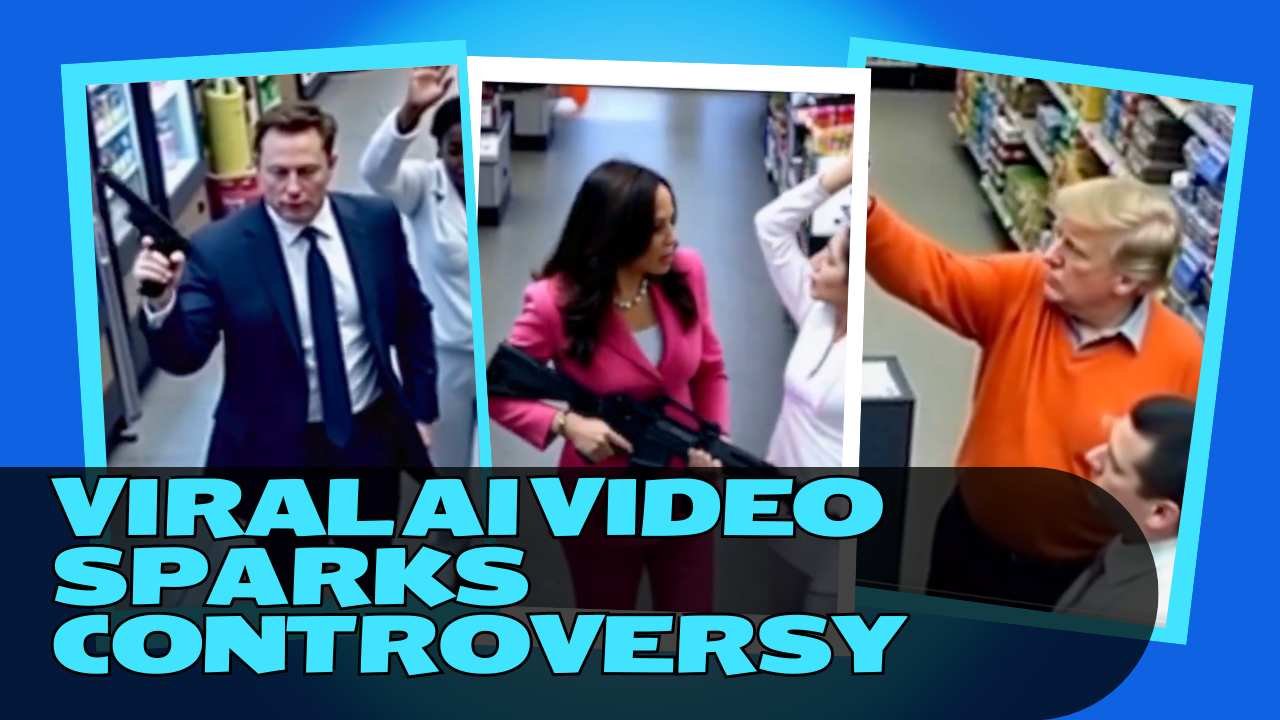In a startling demonstration of AI’s capabilities, a video created by Grok 2 and shared by the Dor Brothers has taken the internet by storm. The hyper-realistic AI-generated footage depicts high-profile figures including Elon Musk, Donald Trump, Kamala Harris, Mark Zuckerberg, and Barack Obama in an alarming scenario – wielding weapons in a store before being arrested by police.
The video, which has rapidly gone viral across social media platforms, has ignited intense debate about the power and potential dangers of artificial intelligence. While entirely fabricated, the clip’s uncanny realism has left many viewers stunned and concerned about the implications for media authenticity in the digital age.
Experts are calling this a watershed moment in the evolution of AI-generated content. The video’s ability to convincingly portray world leaders and tech moguls in compromising situations raises serious questions about the future of information integrity and the potential for misuse of such technology.
“This isn’t just about entertainment or shock value,” says Dr. Emma Chen, a leading AI ethicist. “It’s a stark reminder of how AI can be used to create incredibly convincing false narratives. The implications for politics, journalism, and public trust are enormous.”
The viral spread of the video has prompted calls for increased regulation of AI technologies and better digital literacy education. Many are pointing to this incident as evidence that current safeguards against misinformation may be inadequate in the face of rapidly advancing AI capabilities.
As the video continues to circulate and spark discussion, it serves as a vivid illustration of both the impressive progress in AI technology and the potential risks it poses to society. The incident has become a rallying point for those advocating for more responsible development and use of AI tools.
While the creators of the video claim it was intended as a thought-provoking demonstration rather than a malicious deception, the ease with which it has been mistaken for reality by some viewers underscores the challenges ahead in navigating an increasingly AI-influenced media landscape.
As this story develops, it’s clear that the conversation around AI ethics, regulation, and media literacy is only just beginning. The world watches and waits to see how society will adapt to this new era where seeing is no longer necessarily believing.

